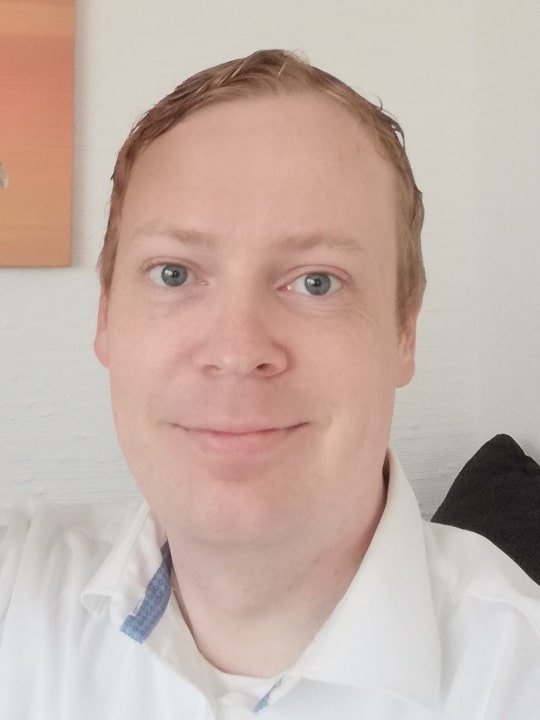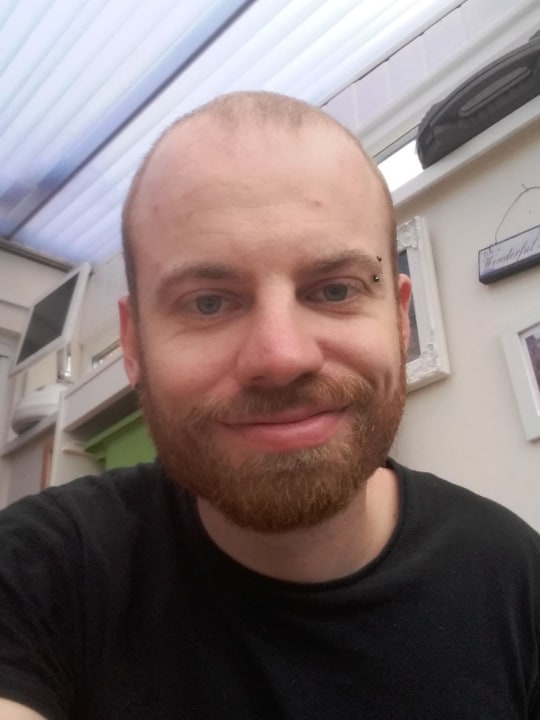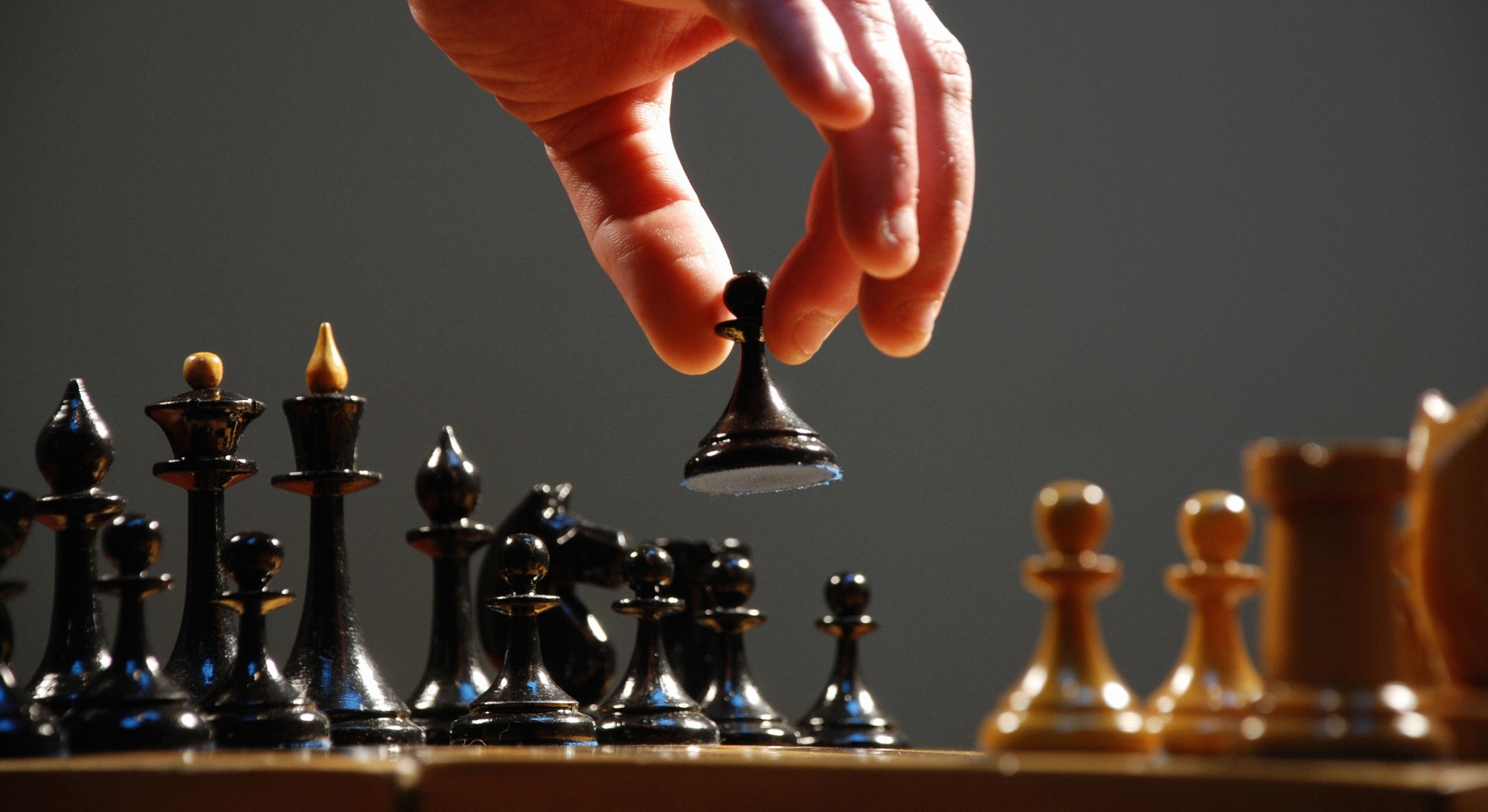As a young person enters the new adventure of becoming a parent, they are confronted with challenges they can never be truly prepared for, no matter how much knowledge they acquired beforehand. Making mistakes and learning from them in practise seems to be the only way for us to progress, be it as children or as parents.
Watch a Short Excerpt:
Transcript (continued):
(Intermission)
William: Neither of us is a parent yet. But I'm sure you've thought about this before: What will you do once there is a little person in your life and you're responsible for their development and feeding and shelter and clothing and and all of that, obviously? But let's stay focused on the ethical, emotional, mental factors. What difficulties do you expect there will be once you have that huge responsibility for a child for your first time?
Steven: It's a good question. Because obviously this podcast is "Who am I?" But how do you deal with when you have somebody that's learning the whole process themselves? So that they're going for the process of "Who are they?", and you're still also going through the process of "Who am I?" So you're trying to be a good parent and do the right thing; but are you doing the right thing for you, or are you doing the right thing for the child? Not even the right thing, just the thing that you think is right. Because there's a difference, obviously. Potentially there's supposed to be you know maybe five different right things. Because again it's not always just one. And then multiple like actually bad things. And then (shrug) does it matter as long as you get a sort of right answer? You know, who knows? But when I have a child, who knows? I thought about it a lot. But in the moment you can't predict really how you're going to respond. You can just try and prepare yourself as much as possible to be ready for those insane... I think a lot of that, having been around the nitty-gritty of parenting, I think parenting isn't that difficult. But when you see the blood, sweat and tears that happens you start to lose a lot of little judgments around parenting. But, to get on topic, to stay on focus, I think there are certain things which are right or wrong. For example discipline, discipline is a primary part of parenting.
William: Disciplining? Is that what you're getting at, like to enforce?
Steven: Yes, so, to help an individual child understand what is right and wrong.
William: When I was a child I thought my parents could do no wrong. I rarely ever saw them make mistakes. Obviously the older I got the more obvious it became that they are fallible too. But you know in the beginning just whatever the parent does is the right thing. And I suppose a naive parent will think that whatever is right for them is right for everyone. And therefore there is no difference between what is right for the child and what is right for the parent. But the older I get the more I realize how clueless and naive people are, even at the age of being parents. I mean that's apparent. But now that I am at that age I wonder how bad of a job I would do if I suddenly were a parent. And it can come, it can happen suddenly. We often have those nine months to prepare. Even that isn't a long time, considering all the things that you could learn to, in theory, become a perfect parent. But even then I think you need to just practice.
Steven: Experience, yeah. You made an interesting statement about how bad a bad a parent I'm going to be. And I think it's an interesting perspective. I think it's actually the correct one for everyone. Because I think we all try and think you know we'll be the best parents, good parents; but no matter what we do it's never gonna feel good enough as a parent. You love your child, well, again, if you're an ideal parent; you will love a child and you'll try and do the best for them. But to the child it will probably, for most of their childhood and teenage years, it'll never be enough what you do. And to yourself you'll feel that way. So it's limiting the amount of, I guess, bad the damage that's done. I know that sounds really extremely negative. But I think that's kind of just how parenting is. I think you're never going to get it right. That's my own personal opinion. No matter what you choose, there's gonna be something ideally right. Again, "right" is such a wrong word to use; "optimum" maybe.
William: I think I get your point. Obviously you can prepare and avoid huge mistakes. You need to work on yourself before you can attempt being a parent. You can, for example... I think, maybe an easy one is nutrition. What do you feed a baby? You know, in the beginning when they have no teeth you need to be very careful what you feed them. Malnutrition is a crime for babies. They just get to be fat. You should just think of it as cute rather than wrong. And then it gets a lot subtler of course. But you're right: no matter how well we prepare, we're going to make some mistakes. I know of of a psychologist who is in the media sometimes: Gabor Maté, I think his name is. And the son is also in the media as a reporter: Aaron Maté. And so Aaron has even interviewed his father on his news show. But the father admitted that "Yeah, I know. I'm fully aware that my weaknesses were transferred onto my son. And I'm not excusing myself. It's just, it is difficult to see sometimes." For him it must become apparent that what he just did must be painful for him: "It comes from the mistakes I made when he was small." But somehow they just live with it and try to improve themselves along the way. We all take some form of trauma or pain from our childhood with us that we were not able to process or, you know, accept at the time, and then work on it later on in life. So I guess rather than trying to prevent every mistake it's good to become aware of them, become aware of the weaknesses that we pass on as parents and that we receive from parents, and be forgiving and loving, and just deal with our own weaknesses rather than trying too hard to correct other people.
Steven: Yes. You mentioned obviously loving. And parenting is very much a, I guess, selfless act because it's about time and energy that it takes to be a parent. Most parents lose their social life, a lot of their social life. And that you have to have a mental barrier because you can end up resenting your child. So you know, if you without realizing having to you know feed, clothe, stay up late till 3:00 in the morning looking after your ill sick child. All these different things have a psychological effect on both parents, well the parent first of all. And then if the parent isn't loving enough, doesn't tap into that biological and psychological necessity, then you end up resenting your child. Because you feel that they're being selfish even though it's just the nature of their development. They need someone. So it can be a struggle to make sure you don't as a parent let that take over. I don't know if so many parents are like that. You just see in their eyes they would on the surface be doing what needed to be done. But the little huffs and the eye rolls and the eyebrows raises and all these little facial expressions that show deep down that they're exhausted of being a parent. And I think that's because a lot of people become parents, again controversial, when they're not ready. Do you think that at all?
William: I don't know if you're ever ready. I just had to think of John McAfee who recently said, who wanted to give advice to young men. He said: "Don't get married before you're 40 because you won't know what you're doing." And then people commented: "What about women? You can't just give advice to men." And he said: "Well most of them are just as applicable to women any way." But I guess he could just put himself in the shoes of young men better than young women. I don't know. But no I don't advocate people not getting married or starting a family until they're 40.
Steven: Yeah, me neither. It was again its general statement of they're probably... There should be more education. You're never ready for parenting. You're never ready for that kind of commitment, that kind of process. There should be so much more help and preparation before you do that, I guess.
William: I think most of the education you get about that is not formal, but comes from your parents and maybe friends who have been through the process already, well who have started the process already. But there are ways, there are sources for formal training. I know some universities even have courses and entire subjects for I don't know what they call them, but family, household stuff.
Steven: Family planning is usually what we call it over here. But I don't know what the translation would be.
William: Yeah, and these days you can find all kinds of stuff on the internet. You just obviously need to be careful not to believe junk. Use common sense. But I think people in general just feel the need to help children. Because children are so vulnerable and dependent. So if someone, if I walked on the street and saw someone abusing their child, even though it's none of my business, in a sense, I would feel a strong force to to intervene.
Steven: The most interesting is: so would they in their roles reversed. So because they are a parent... Because they're a parenting you know all the time, they're constantly drained by the situation because they don't have enough barriers put up, over time they haven't learned the process of not letting tiredness and exhaustion overcome love. Because we could be out on the street, like you say, and see someone. If they're in pain people generally are lovely because they're like "Oh, an innocent child, we must protect them." But if you... Let's say you take 100 people the age of 20, you give them a child at the age of three for a month. I think in that month those 20-year-olds would just be going nuts. They would be sleep-deprived. They would be depressed, they would be... most of them, again not all. But most of them would be. And they would be at borderline, probably like discipling too harshly to the children to keep them quiet, using all the easy methods like giving them the computer all day, TV all day, just keep them quiet. Again in small doses I believe it's fine. But it's a fascinating, I guess, contrast between what we can handle from the outside to what we can when we're the actual parent.
William: Yeah, interesting.
Steven: That would be a cool education. I think everyone should. I think society should give people the ages of between ages 15, 16 and roughly 20 every year have a week, 48 hours, just with a young child. Because it would give them, like you said, an experience of how it works. But also it would make them think twice before just going ahead and having children straight away.
William: In two cartoons, I think, I've seen something like this. And that gives me the thought that maybe in American high schools there is an experiment at least like that, where a boy and a girl, like everyone will get paired up so that you're like parents, and a boy and a girl will each get an egg, maybe with a face drawn on it or something; and the task is to keep it safe for one week. Can you at least make sure that the egg doesn't crack or something similar like that?
Steven: That's so demoralizing. It's horrific. Because it again... I get the sentiment at the psychology behind it all, but it's like, if you fail that experiment you are then made to look like a horrific person.
William: It gives you something to think about.
Steven: Yeah, true. And then also it's nothing like actually being a parent. You're not getting the reward. Because the good thing about parenting is actually the positive side of it. That's all about the negative side. But at the positive side where you literally have this incredible intellectual being that can be happy, fun and teach you so much. Oh my goodness, my nieces and nephews have taught me so much of just how to be a better person.
William: Yeah, that's true. None of that would be in the experiment. I love to play with my nieces and nephew as well. I often don't think of it as learning. But you're right. There's plenty we can learn from people younger and less experienced than us. Because, well, one reason is that they have less care, less of a burden in this world. And so you can be reminded of all the things that you miss out on because you worry so much about things that are not so important but just necessary, apparently, maybe. So you get reminded of the basics and what makes you happy. Because that's what... Children just want to be happy all the time, no matter the consequence.
Steven: That's a perfect statement right there. "Let me teach you how to be happy." Yeah, you turned out perfectly.
Other Episodes:
Ep. 51: How Conditioned Are We ?
How much of what you do, think and feel comes from intentional, free chosing? How much of your actions and decisions are pre-programmed? You are the product of your upbringing, culture and genetics. What is out of our control? What can we influence? How can we counteract our predestination?
Ep. 50: What Am I Responsible For ?
Are you taking too little responsibility for your actions, or perhaps too much? How much are you able to understand or determine the consequences of your decisions? Are you in control of anything? Is free will an illusion? Can you do something to improve your thoughts, feelings and relationships with...
Ep. 49: Empathy Can Be A Super Power
Everyone has the choice of either living isolated from other people and their own feelings on the one hand, or to connect with others and their own emotional core. The road towards connectedness involves vulberability and weakness. But it leads to a very rewarding ability that includes deeper understanding of...
Ep. 48: Why Am I Ashamed?
What secrets do you have? What facts about you must never become known to others? What happens in our childhood that implants beliefs in us that hide away for the rest of our life? Can we uncover them deliberately? Can we regain the emotional freedom and levity that playing children...







